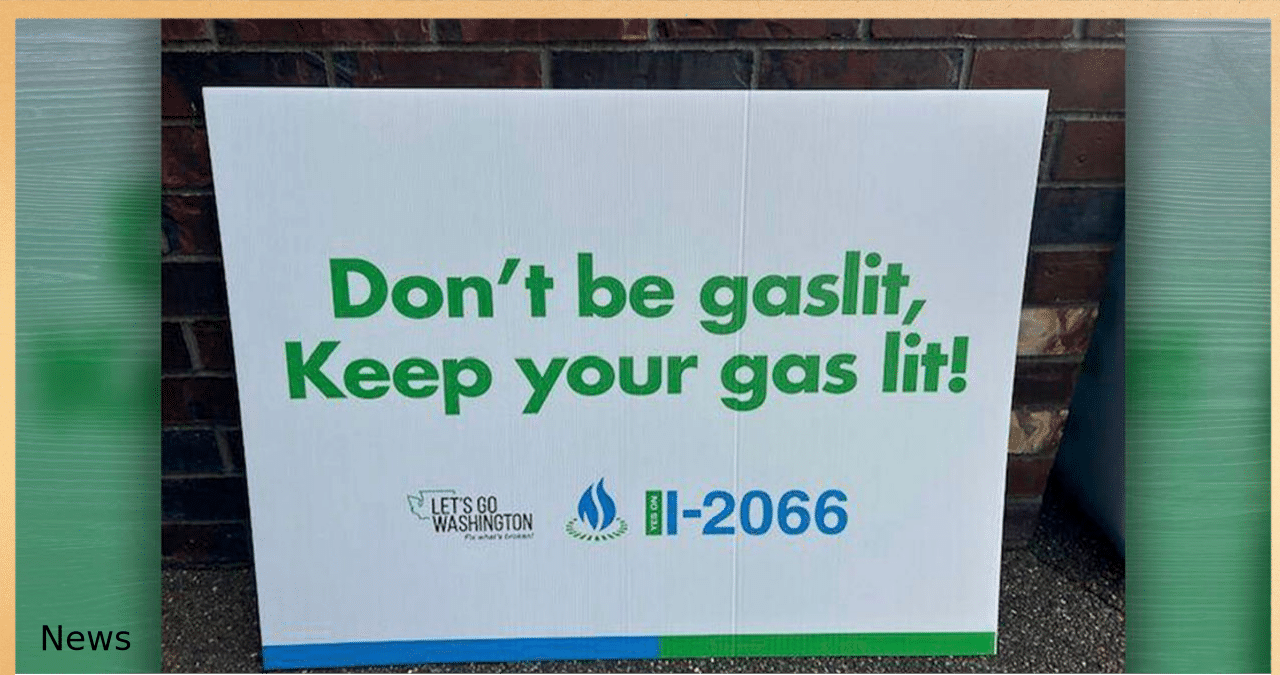On Tuesday afternoon, supporters of Initiative 2066 submitted over 431,000 signatures to the Secretary of State’s Office in Tumwater. Their aim is to have the measure included on the ballot this November, which would safeguard energy options such as natural gas and propane.
On Tuesday, the Building Industry Association of Washington and Let’s Go Washington, along with other partners, held two news conferences to present signatures. The conferences were held at noon in Redmond and at 3 p.m. at SOS headquarters.
Brian Heywood, from the Let’s Go Washington voter advocacy organization, announced at a recent event that they have collected 431,063 signatures for Initiative 2066. The initiative aims to stop the state from imposing a natural gas ban. The group is currently submitting the signatures for review.
As the rolling carts were loaded with over 18 boxes of signed petitions, a small group of supporters cheered eagerly. The boxes were then taken inside for verification, as the crowd watched with anticipation.
According to state law, in order to qualify, a submission of 324,516 valid signatures from registered Washington voters is required. This figure is determined by the number of votes cast during the most recent gubernatorial election.
To increase the chances of an initiative being qualified for the ballot, it’s advisable for sponsors to submit a larger number of petition signatures. It’s common for some signatures to be invalidated due to non-registration and duplication. Therefore, having an extra “cushion” of around 15% to 20% is usually enough to ensure that the initiative qualifies for the ballot.
Jessie Simmons from Olympia Master Builders informed The Center Square that he submitted additional petition signatures which are yet to be included in the tally, prior to the press conference scheduled on Tuesday in Tumwater.
Simmons revealed that the office has recently received a collection of signatures from individuals who brought them in. The organization hosted several successful signing events where they were able to amass a couple of hundred signatures. The response has been overwhelming, according to Simmons.
According to Heywood, surpassing the target of over 430,000 signatures within 44 days was previously deemed impossible. However, he revealed that there are plans to submit more petitions before the Friday deadline for signature submissions.
According to Heywood, they conducted a poll on the matter and the results showed that 80% of the respondents were against the ban, while 10% supported it and the remaining 10% were unsure. This convinced Heywood that it was a winning issue.
According to him, the messaging of the supporters of the measure is crucial from now until November. He is aware that opponents with significant financial resources will campaign against it.
“They will attempt to gaslight and deny that it is a ban, but the bill explicitly requires PSE to develop a geographic electrification strategy aimed at eliminating regions where they refuse to provide natural gas.”
House Bill 1589, which permits Puget Sound Energy to devise a plan to shift away from natural gas, was recently enacted into law during this session. As a result, the push for I-2066 to be included in the upcoming November ballot was initiated.
Heywood expressed his conviction that their message should revolve around I-2066’s ability to prevent a ban on natural gas, regardless of what 1589 may have been attempting to do. He stated that if people are not in favor of banning natural gas, then they should support I-2066.
In his statement, he emphasized that this is a preemptive strike to make it clear that natural gas will not be banned or made so expensive that it becomes practically unusable.
In the upcoming November elections, voters will have the opportunity to weigh in on three initiatives supported by Republicans. The first initiative seeks to repeal the Climate Commitment Act, while the second initiative would grant Washington workers the option to opt out of the state’s long-term care program. The third initiative aims to repeal the capital gains tax in the state.



